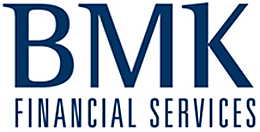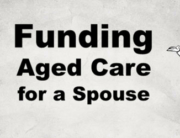Residential aged care received only minimal attention in the government’s recent Federal Budget. Unfortunately, people in Newcastle entering residential aged care from 1 January 2016 are not winners from the budget, as the strategy available to assist families wishing to keep the family home will be removed.
Currently there is an advantage for people entering aged care to keep the family home and fund all or part of their accommodation costs in the aged care facility by renting it out.
This strategy simply requires:
- Renting out the family home, and
- Not paying the lump sum accommodation cost in full, i.e. pay some or all of the accommodation cost by ‘periodic payment’ as a Daily Accommodation Payment (DAP).
If both these actions are followed, the former home remains an exempt asset for pension purposes, and the rent received is also exempt under both the pension income test and the Means Tested Aged Care Fees (previously the Income Tested Fee).
The government proposes to remove this opportunity on 1 January 2016.
This strategy presents a great opportunity for those wishing to keep the family home and use the rent to fund part or all of the aged care fees for someone you care about. This also avoids the need to sell the family home quickly to stop the growing debt of interest applied to unpaid accommodation costs in aged care facilities.
However there can be issues with this strategy if families don’t carefully plan for the future. Will the rent cover the full cost of aged care? What if the home isn’t rented for a period of time? What about the on-going maintenance costs and management of the property? Is the home in a rentable condition and what needs to be done to achieve this? What tax implications will the rent produce? Does land tax apply? These are some of the many questions that need to be considered before proceeding down this path.
Limiting Aged Care Choices
Aged care reforms implemented on 1 July 2014, were all about providing choice for prospective residents and their families when considering aged care accommodation. The removal of this protection for residents can limit the choices available and could potentially force more people to sell the family home and pay for their accommodation in the form of a Refundable Accommodation Deposit (RAD). The government has stated that these changes will save $26.2 million over the next five years. But there may also be another reason for effecting this change – it may be what the ‘for-profit’ sector of aged care needs to ensure longevity in this industry.
Many providers may welcome these changes, as some rely on a large percentage of their residents funding their accommodation through the payment of lump sum RADs. These homes can then use the payments to retire debt with the banks to reduce or eliminate the interest payable for potentially large borrowings. The government has been closely monitoring how residents choose to pay for their aged care accommodation. There was ‘fear’ from within the industry that, due to changes in means testing using RADs in this calculation and capping the value of the family home, there may be a preference towards the DAP option.
An Expanding Aged Care Industry
The residential aged care industry needs to expand rapidly over the next 10 years to ensure sufficient services are available to a growing pool of people that may require care in the future. Some have said that the rate of growth the industry must achieve needs to be in excess of 70,000 new places over that period, which equates to approximately 145 new beds per week. The government needs to ensure that growth continues and investment is encouraged by existing and new providers.
Helping navigate the complexity
With the overhaul of aged care legislation and ongoing changes, the placement of a loved one into residential aged care is becoming increasingly complex. It is now more important than ever to seek professional financial assistance with an aged care specialist adviser. ipac financial care are the specialist aged care team who can help you understand these and other issues around aged care.
 Contact Brad Lonergan (Financial Planner) for more information on aged care advice in Newcastle.
Contact Brad Lonergan (Financial Planner) for more information on aged care advice in Newcastle.
0423 621 120 or email at brad@bmkfs.com.au







